Pakistan, a land of profound spiritual heritage, is a beacon for pilgrimage tourism, offering sacred sites across Islamic, Sikh, Hindu, Buddhist, and indigenous faiths. These destinations, steeped in history and spiritual significance, draw international pilgrims seeking divine connection and cultural immersion. This article highlights key pilgrimage sites in Pakistan, with a detailed exploration of each faith tradition’s unique appeal, emphasizing why it is an inviting destination for spiritual seekers worldwide.
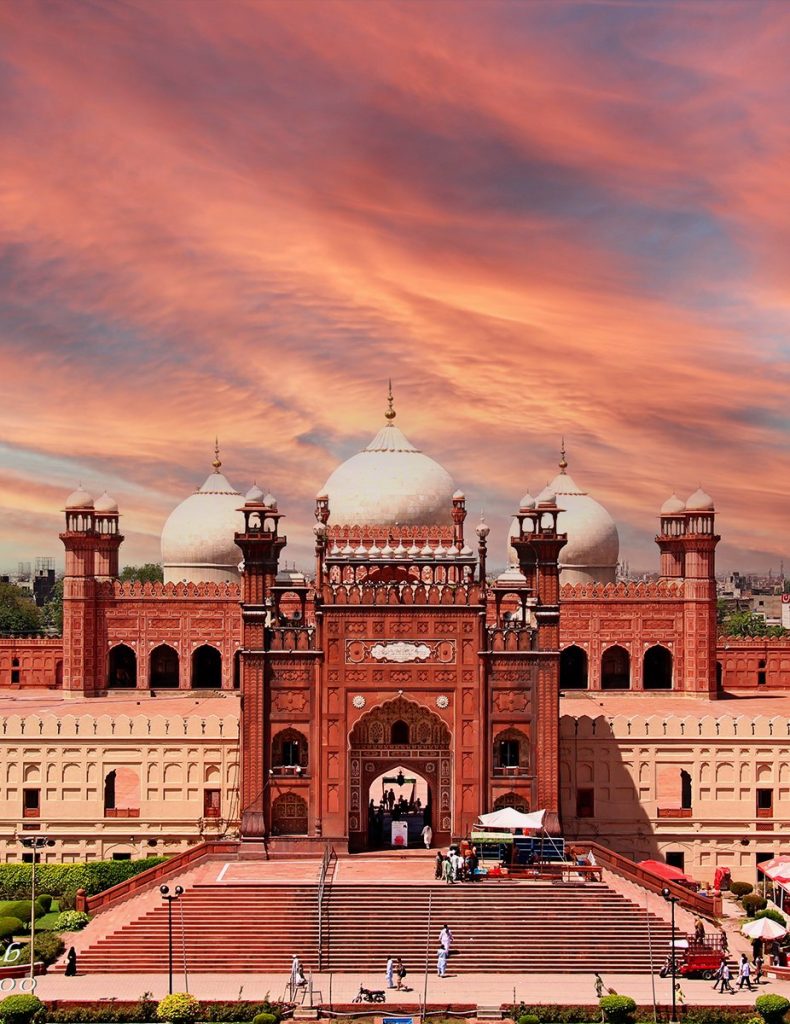
Pakistan’s Islamic pilgrimage, deeply rooted in Sufism, is a vibrant tapestry of spiritual devotion, drawing millions to its sacred shrines and mosques. The country’s Sufi tradition emphasizes mysticism, music, and communal worship, creating an immersive experience for pilgrims. Shrines host qawwali performances, where soulful melodies and poetry inspire spiritual awakening, while annual Urs festivals celebrate saints with prayers, dances, and gatherings that foster a sense of unity. Iconic mosques, with their architectural grandeur, provide serene spaces for prayer and reflection, blending historical significance with spiritual solace. These sites, accessible via the NTP Tourism Portal with guided tours and English-speaking guides, offer international pilgrims a chance to engage in Pakistan’s rich Islamic heritage, making it a unique destination for spiritual exploration.
Data Ganj Bakhsh Shrine, Lahore: A Sufi shrine dedicated to Ali Hujwiri, known for qawwali and Urs festivals.
Shrine of Lal Shahbaz Qalandar, Sehwan: A mystic shrine famous for dhamaal dance and vibrant Urs celebrations.
Shrine of Shah Rukn-e-Alam, Multan: A UNESCO-nominated Sufi shrine with stunning blue-tiled architecture.
Badshahi Mosque, Lahore: A Mughal-era mosque offering a serene space for prayer.
Faisal Mosque, Islamabad: A modern architectural gem for worship and reflection.
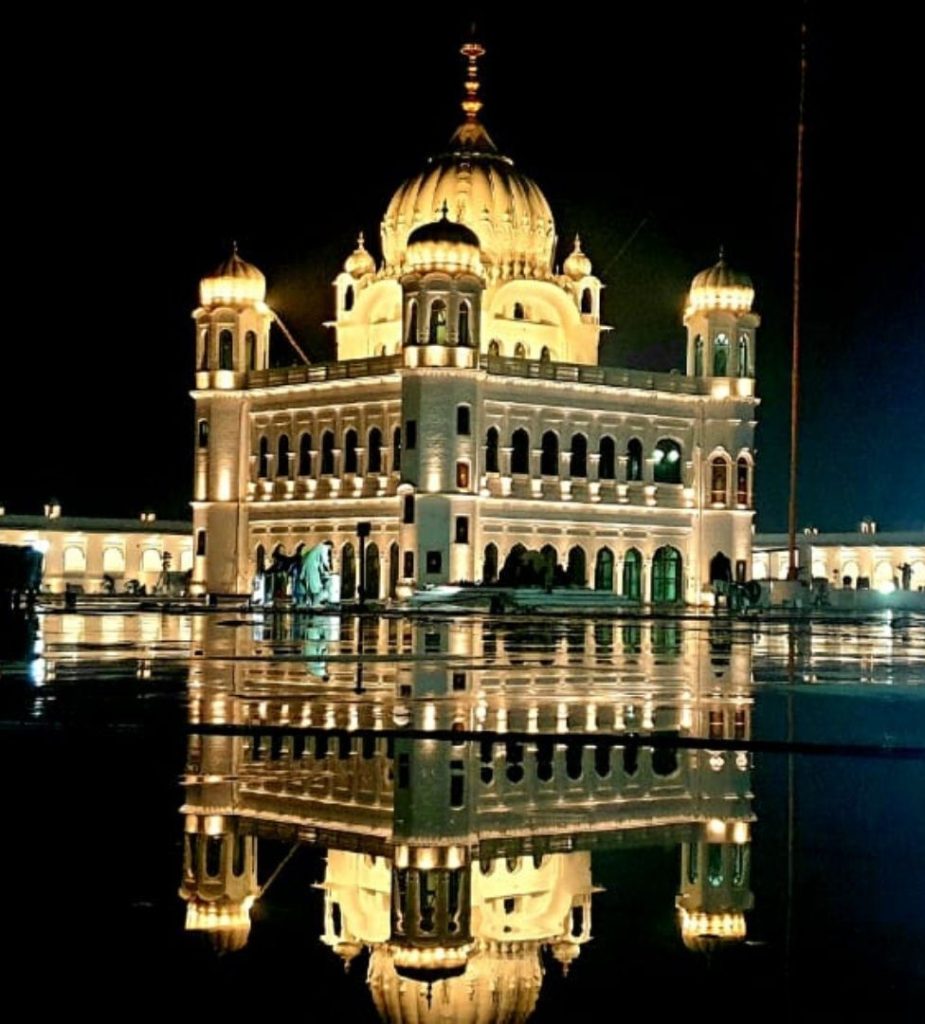
Sikh pilgrimage in Pakistan centers on gurdwaras that hold deep historical and spiritual significance, tied to the life and teachings of Guru Nanak and other Sikh Gurus. These sacred spaces are vibrant centers of devotion, where pilgrims participate in prayers, hymns, and communal langar meals that embody Sikh values of equality and service. The gurdwaras, set in serene environments, offer a space for reflection and connection to Sikh heritage, with festivals like Guru Nanak’s Birthday drawing global devotees. The NTP Tourism Portal facilitates access with packages including secure transport and lodging, while the visa-free Kartarpur Corridor enhances accessibility for international pilgrims, particularly from India, the UK, and Canada, making Pakistan a welcoming hub for Sikh spiritual journeys.
Gurdwara Janam Asthan, Nankana Sahib: Birthplace of Guru Nanak, central to Sikh celebrations.
Gurdwara Panja Sahib, Hasan Abdal: Known for Guru Nanak’s handprint and langar meals.
Gurdwara Darbar Sahib, Kartarpur: Accessible via the Kartarpur Corridor, tied to Guru Nanak’s final years.
Gurdwara Dera Sahib, Lahore: Marks the martyrdom site of Guru Arjan Dev.
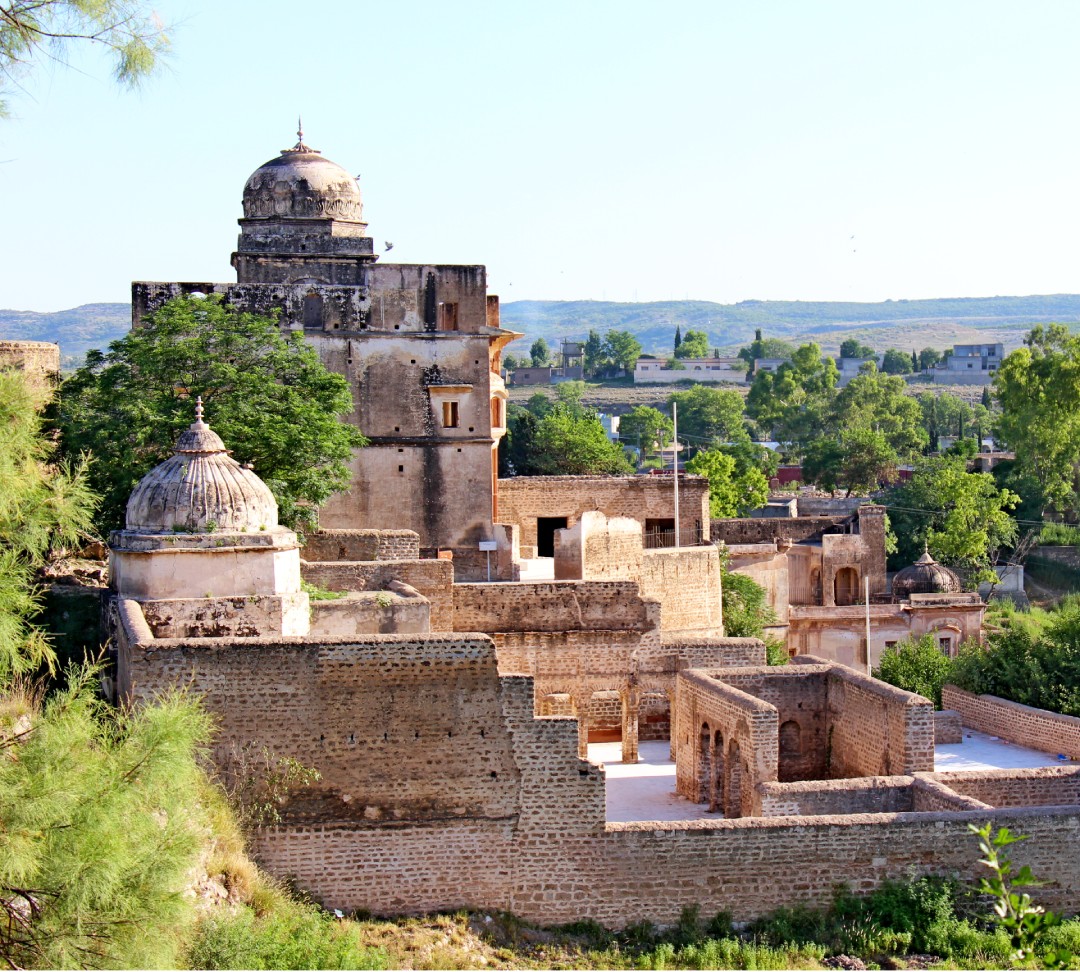
Hindu pilgrimage in Pakistan revolves around ancient temples that resonate with mythological and spiritual significance, offering devotees a profound connection to their faith. These sites, often set in scenic or remote locations, are steeped in stories from Hindu epics, drawing pilgrims for rituals, prayers, and festivals like Maha Shivratri. The temples’ historical architecture and sacred settings create an atmosphere of reverence, appealing to devotees seeking blessings and spiritual renewal. The NTP Tourism Portal provides tailored packages with logistical support, ensuring safe and enriching visits for international Hindu pilgrims, particularly from India and beyond, to these sacred sites.
Katas Raj Temples, Chakwal: A Shiva temple complex with a sacred pond.
Hinglaj Mata Mandir, Hingol National Park: A Shakti Peetha dedicated to Goddess Hinglaj.
Sadhu Bela Temple, Sukkur: A Krishna temple on an Indus River island.
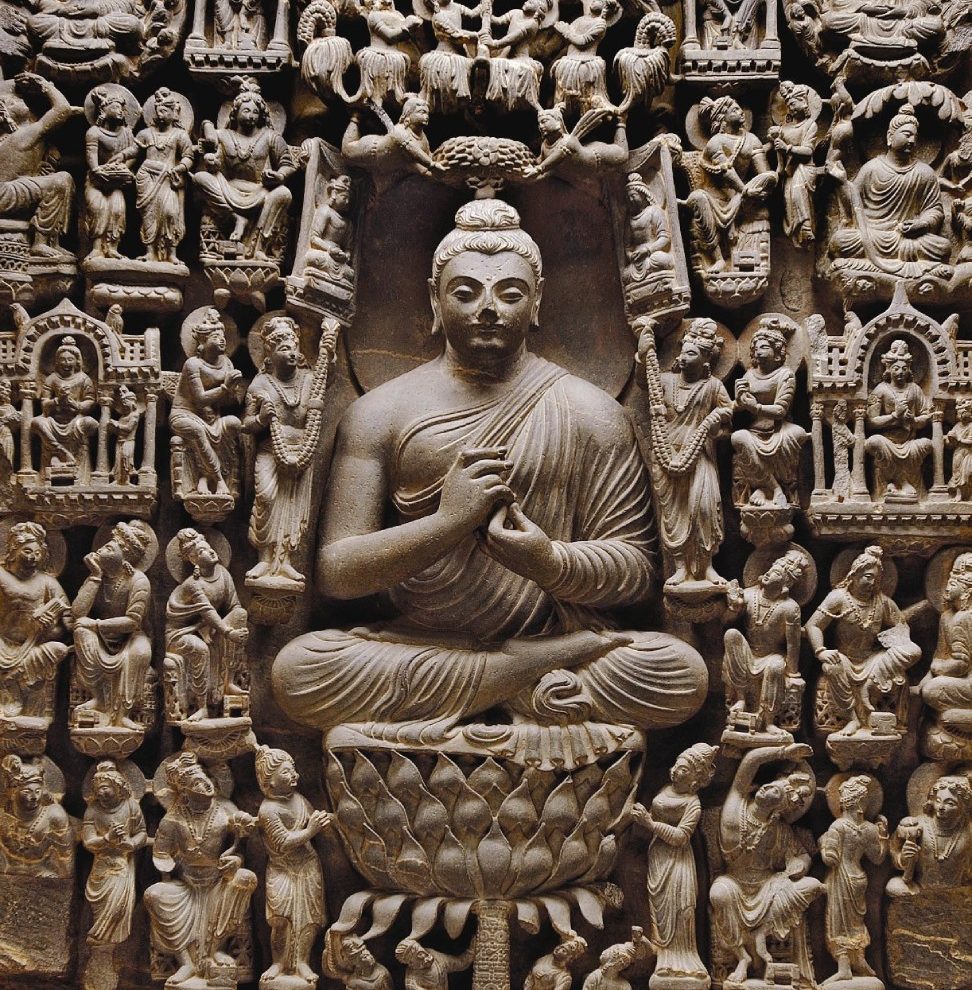
Pakistan’s Buddhist pilgrimage sites, tied to the ancient Gandhara Civilization, offer a serene haven for meditation and reflection, attracting pilgrims from East Asia and beyond. These UNESCO World Heritage Sites, including stupas and monasteries, reflect the rich legacy of Buddhism in the region, with intricate carvings and ancient relics that narrate the faith’s historical spread. Pilgrims visit to engage in meditation and explore Buddhist art, finding peace in the tranquil settings of these archaeological treasures. The NTP Tourism Portal offers curated packages with guided tours and eco-lodge stays, making these sites accessible for international visitors seeking spiritual and historical insights.
Dharmarajika Stupa, Taxila: A 2nd-century BCE stupa with monastic relics.
Butkara Stupa, Swat Valley: A 3rd-century BCE stupa with intricate carvings.
Takht-i-Bahi, Mardan: A 1st-century CE hilltop monastery complex.
Jaulian Monastery, Taxila: A 2nd-century CE site with preserved stupas and monk cells.
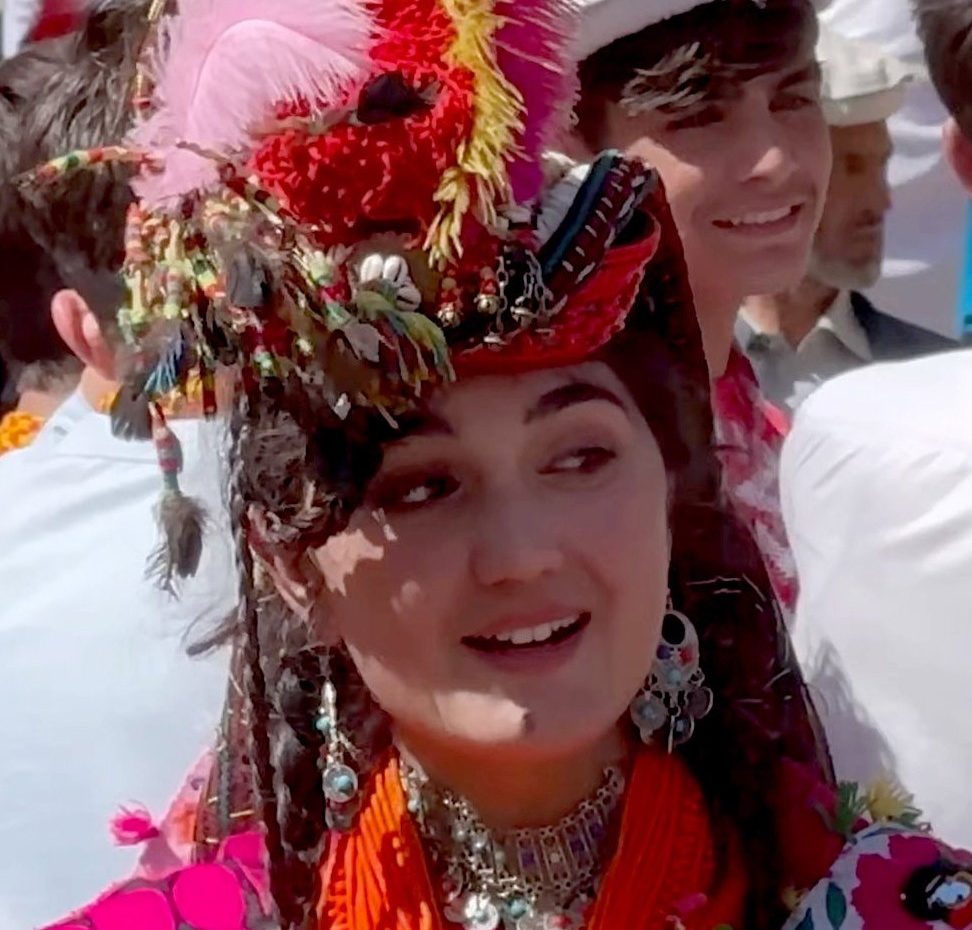
Pakistan’s indigenous and minority faith sites, particularly those of the Kalash and Parsi communities, offer unique spiritual experiences that blend ancient rituals with cultural vibrancy. The Kalash, with their polytheistic beliefs, celebrate festivals like Chilam Joshi and Uchal, where dances, offerings, and communal rituals create a lively spiritual atmosphere. Parsi fire temples provide a quieter, introspective experience, rooted in Zoroastrian traditions. These niche sites attract spiritual tourists seeking authentic, lesser-known faith practices, with the NTP Tourism Portal offering packages that include cultural tours and eco-friendly lodging, ensuring a meaningful experience for international visitors.
Kalash Valley Temples, Chitral: Polytheistic shrines for Kalash festivals.
Jestak Temple, Bumburet: Dedicated to the Kalash goddess Jestak.
Mahadev Temple, Rumbur: A Kalash temple honoring deity Mahadev.
Parsi Fire Temple, Karachi: A Zoroastrian temple for reflection and prayer.
Pakistan’s faith and pilgrimage tourism stands out for its diversity, authenticity, and warm hospitality. Its sacred sites, from Sufi shrines to Sikh gurdwaras, offer intimate spiritual experiences in less crowded settings compared to other global pilgrimage destinations. The cultural richness—qawwali music, langar meals, and ancient rituals—complements the spiritual journey, inviting international pilgrims to explore heritage alongside faith. English-speaking guides, streamlined e-visa processes, and visa-on-arrival options for many countries enhance accessibility. Social media platforms like X have amplified awareness, with travel agencies showcasing pilgrimage routes and testimonials, making Pakistan an inviting destination.
Pakistan’s tourism infrastructure supports faith travelers with tailored services. The NTP Tourism Portal connects pilgrims with private operators offering comprehensive packages, including transport, lodging, and guided tours. Hotels like Serena Hotels in Lahore and Islamabad provide comfortable stays near sacred sites, with amenities designed for international guests. Security measures, such as escorted group tours for Sikh and Hindu pilgrims, ensure safety, particularly in border areas like Kartarpur. Facilitators accessible via the NTP Tourism Portal, offer telemedicine consultations and travel insurance, addressing health concerns for foreign pilgrims. Cultural workshops, such as calligraphy classes in Lahore or Buddhist art sessions in Taxila, enrich the experience, blending spirituality with learning.
Pakistan’s faith and pilgrimage tourism invites travelers to embark on a transformative spiritual journey through its Islamic, Sikh, Hindu, Buddhist, and indigenous sacred sites. With comprehensive services, warm hospitality, and a rich cultural backdrop, the country offers unparalleled opportunities for divine connection. Whether praying at a Sufi shrine, meditating at a Buddhist stupa, or joining a Kalash ritual, international pilgrims will find Pakistan a welcoming and inspiring destination for spiritual exploration.